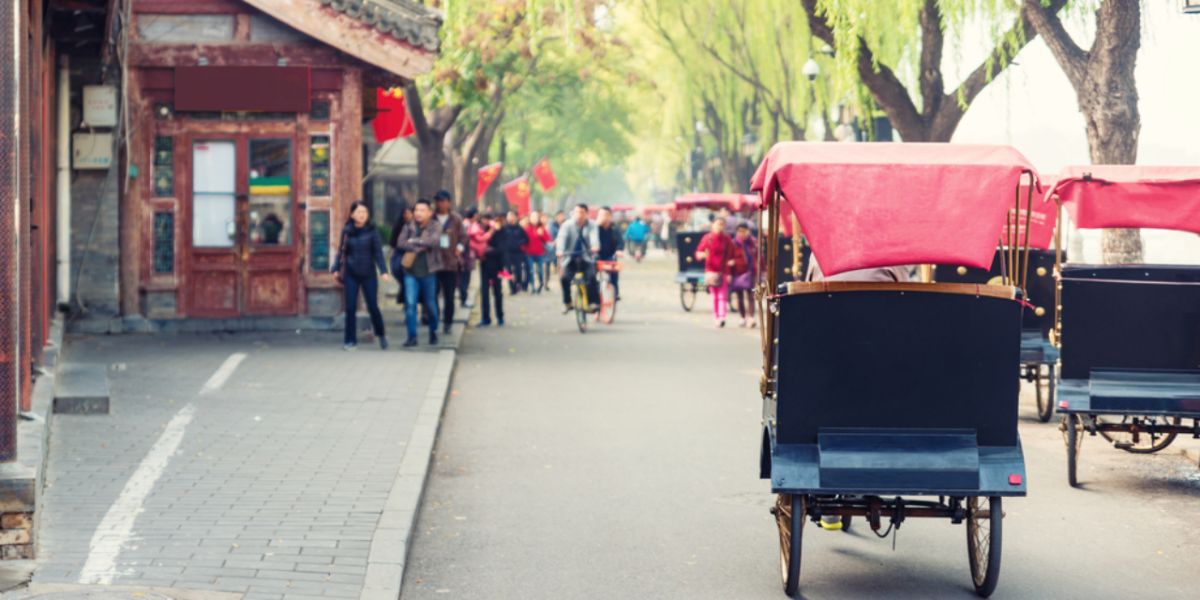
China is the world's 4th largest country covering an area of over 9.597 million square kilometers. But despite the country's impressive size, traveling around China is easy and convenient. With a developed network of air, land, and sea transport, you will not only be able to see a lot of China, but also do so in comfort and with a wide choice of transportation means at your disposal.
Traveling around China by air
China is home to over 230 airports and a vast array of airlines handling both national and international flights. There are nine airlines operated by the state, and Air China, China Eastern Airlines, China Southern Airlines, and Hainan Airlines are the so-called Big Four taking on most of the aerial workload. Flying with these airlines also tends to be more expensive compared to others. With that, there are also low-cost options for flying within China, like Spring Airlines and Beijing Capital Airlines.
Airplanes and airports are secure and comfortable, with the staff and airline crew usually able to speak both English and Chinese.
Warning:
Delays and cancellations are quite common in Chinese airports due to air traffic control, weather conditions, and, occasionally, fog and pollution levels.
Useful links:
Traveling around China by train
China has a very developed high-speed rail (HSR) network, which has substantially reduced travel time between the country's major cities. A high-speed train can take you from the capital of Beijing in the north to its largest city, Shanghai, in the east in just five hours; and from Shanghai to the country's southern metropolis of Guangzhou in under seven hours.
By contrast, if you travel from Shanghai to Guangzhou on a regular train, the journey will take up to 16 hours. Traveling on regular trains can be an exciting experience. If you want a glimpse of traditional China, tickets for regular trains are also significantly cheaper.
Good to know:
If you travel on a regular train, you will have a choice of carriages with different levels of comfort. There are hard seaters, soft seaters, hard sleepers, and soft sleepers on most long-distance trains.
Useful link:
Traveling around China by bus
Buses in China are cheap and fast and connect most cities and towns in the country. Most long-distance buses are comfortable with soft seats and air conditioning; some even have onboard Wi-Fi. Typically, inter-city buses operate from 6:30 am to 11 pm, but there are also night-time buses equipped with berths for sleeping. Most cities in China will have several bus stations in different parts of the city, and you can purchase tickets directly at the station, online, or through mobile apps.
How to purchase tickets in China?
Buying tickets in China, whether it is for the plane, train or bus, is easy. The quickest and most convenient way to purchase tickets (especially for long-distance travel) would be online. You can do that on dedicated travel websites like Ctrip or Qunar. Alternatively, you can use the country's number one go-to app, Wechat, to buy tickets for your next journey.
If you don't mind the commute, you can also buy tickets directly at the airport, train or bus station. There, you can either get your ticket at the ticket machine or the ticket office.
Important:
Note that it is not recommended to travel during major Chinese holidays, especially Spring Festival. Spring Festival (or Chinese New Year) rush, also known as 'Chunyun', is the most massive human migration on the planet, and, as one might expect, purchasing tickets and moving around the country during this time would be complicated.
Traveling around China by taxi
Hailing a taxi in China is not difficult unless you are looking for one during rush hour or on a rainy day (residents prefer to travel by taxi in bad weather, which leads to long lines for available taxis).
Note that you will see differently colored taxis in most cities in China. Some of them are limited to certain districts, and you may need to change taxis if going far out in the suburbs or to satellite towns.
In addition to the state taxi service, there are privately owned taxi services that mostly operate via mobile applications, which work similarly to Uber. DiDi is China's number one taxi app, which you can use to order a taxi almost anywhere, from a big city to a small town.
Good to know:
Popular Western taxi apps like Uber and Lyft do not operate in China.
When you get into the taxi, make sure that the driver starts the meter to calculate your taxi fee (some drivers may ask you for a fixed amount which is usually not in your favor). In addition, in certain cities, an additional petrol tax is applied to your taxi fee, usually 2-3 yuan.
Most taxi drivers only speak Chinese. Moreover, some of them may speak a specific Chinese dialect and may not be able to understand you if you try to speak standard Mandarin. It is strongly advised to be in possession of your destination address written in Chinese.
Renting a car in China
You are not authorized to drive a car in China unless you have a Chinese driver's license. You are, therefore, advised to rent a car with a driver. Rental rates are around 500-600 yuan per day. You will find rental agencies in most major cities.
Useful links:
We do our best to provide accurate and up to date information. However, if you have noticed any inaccuracies in this article, please let us know in the comments section below.








